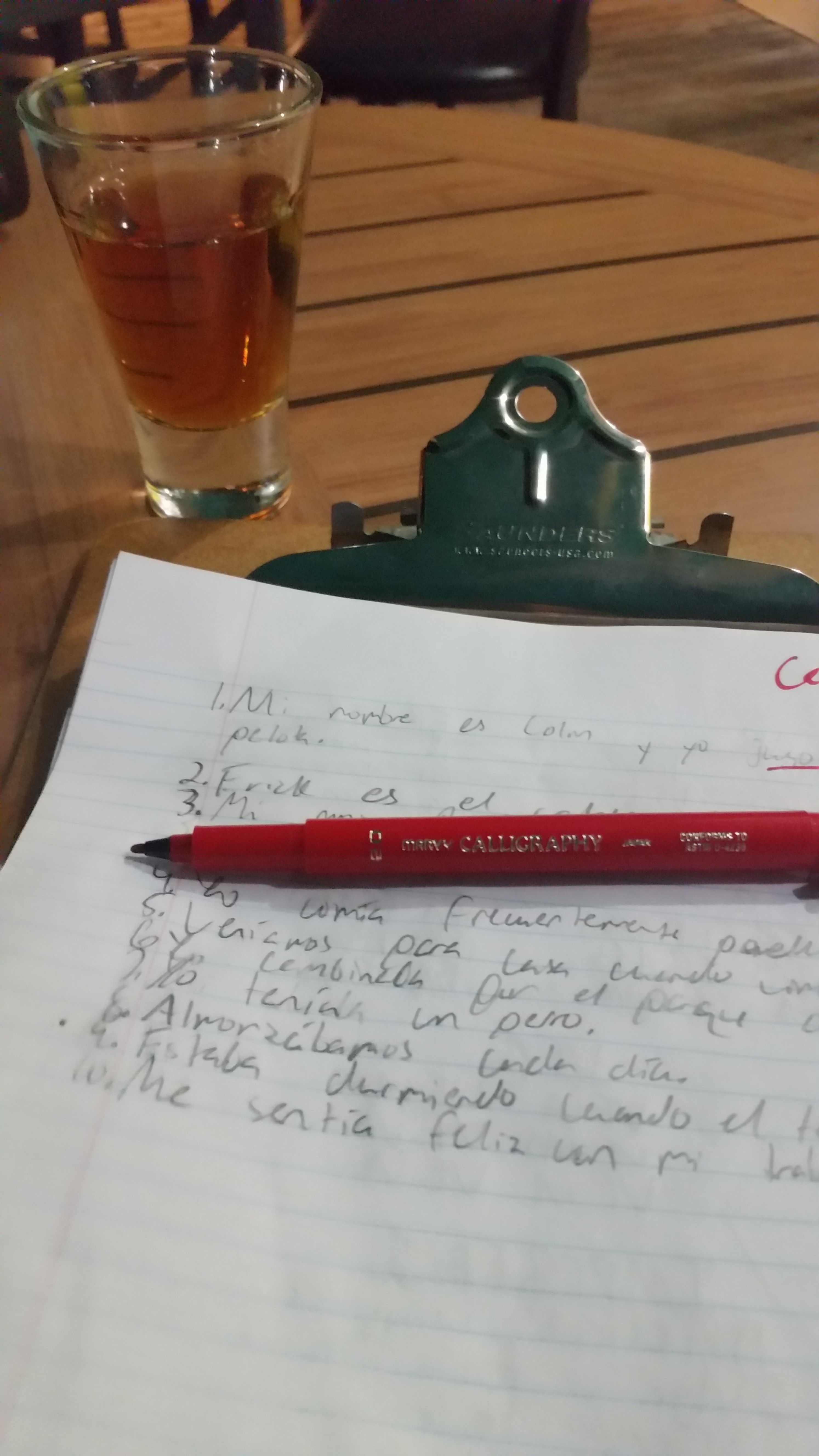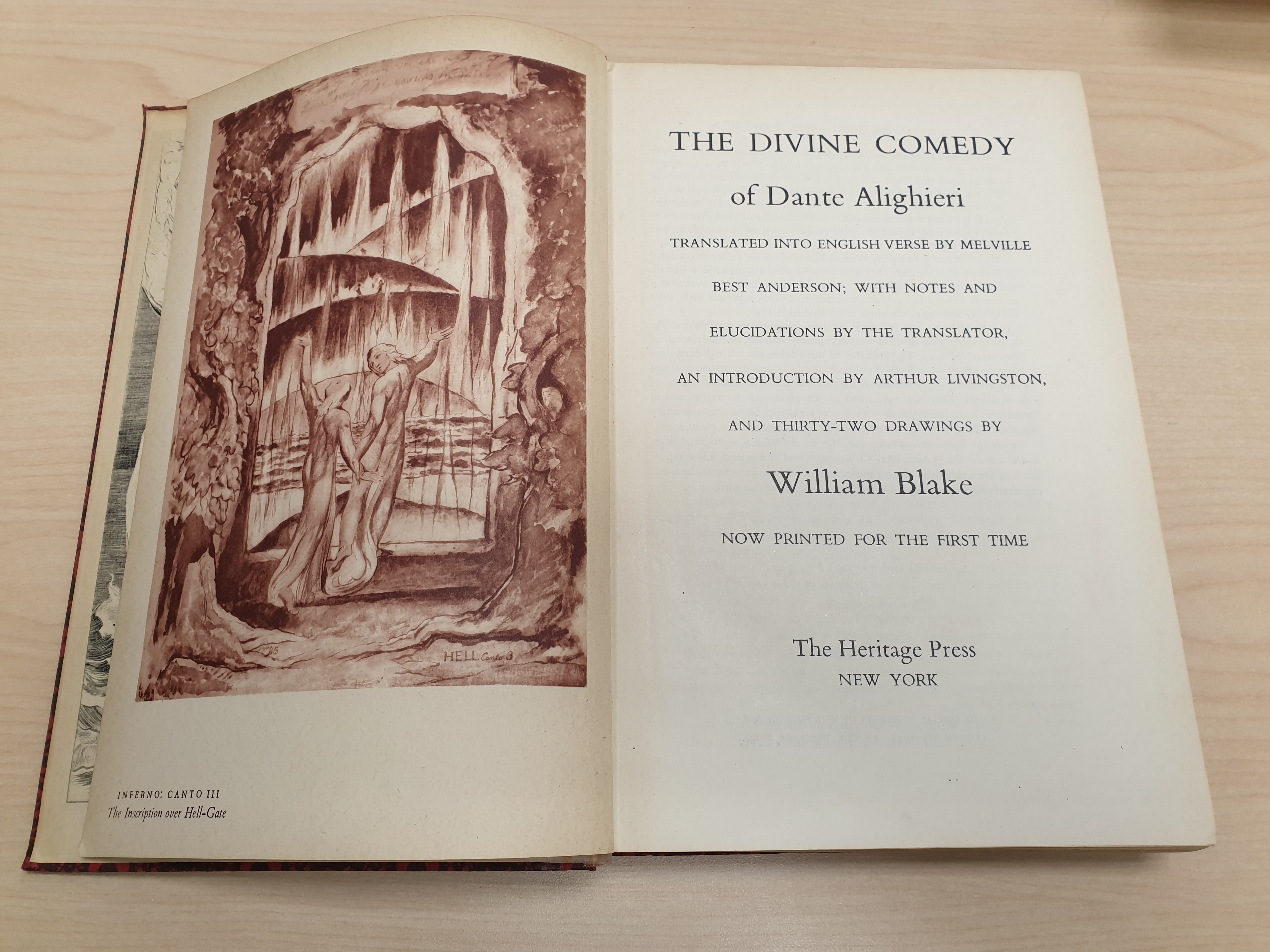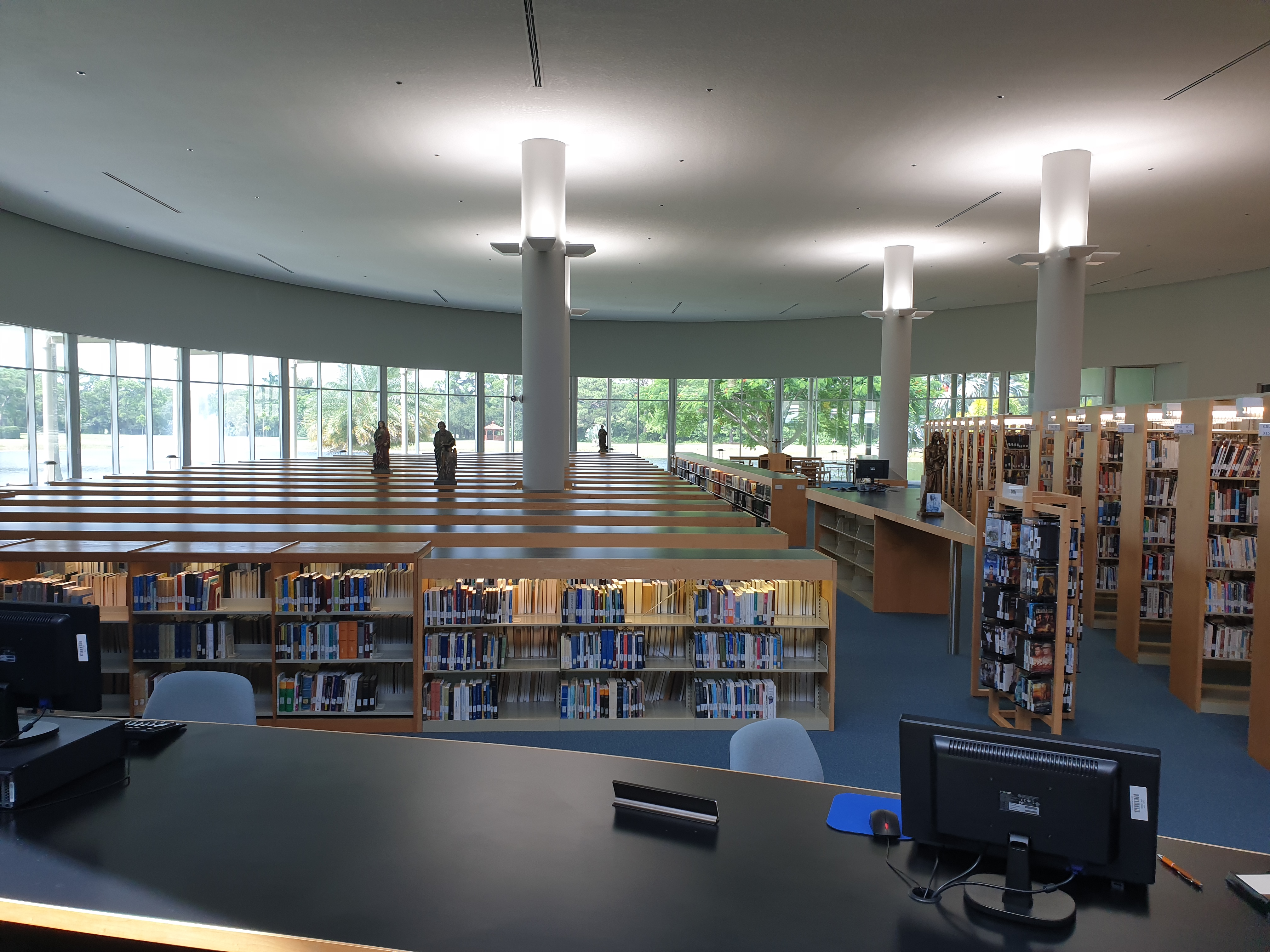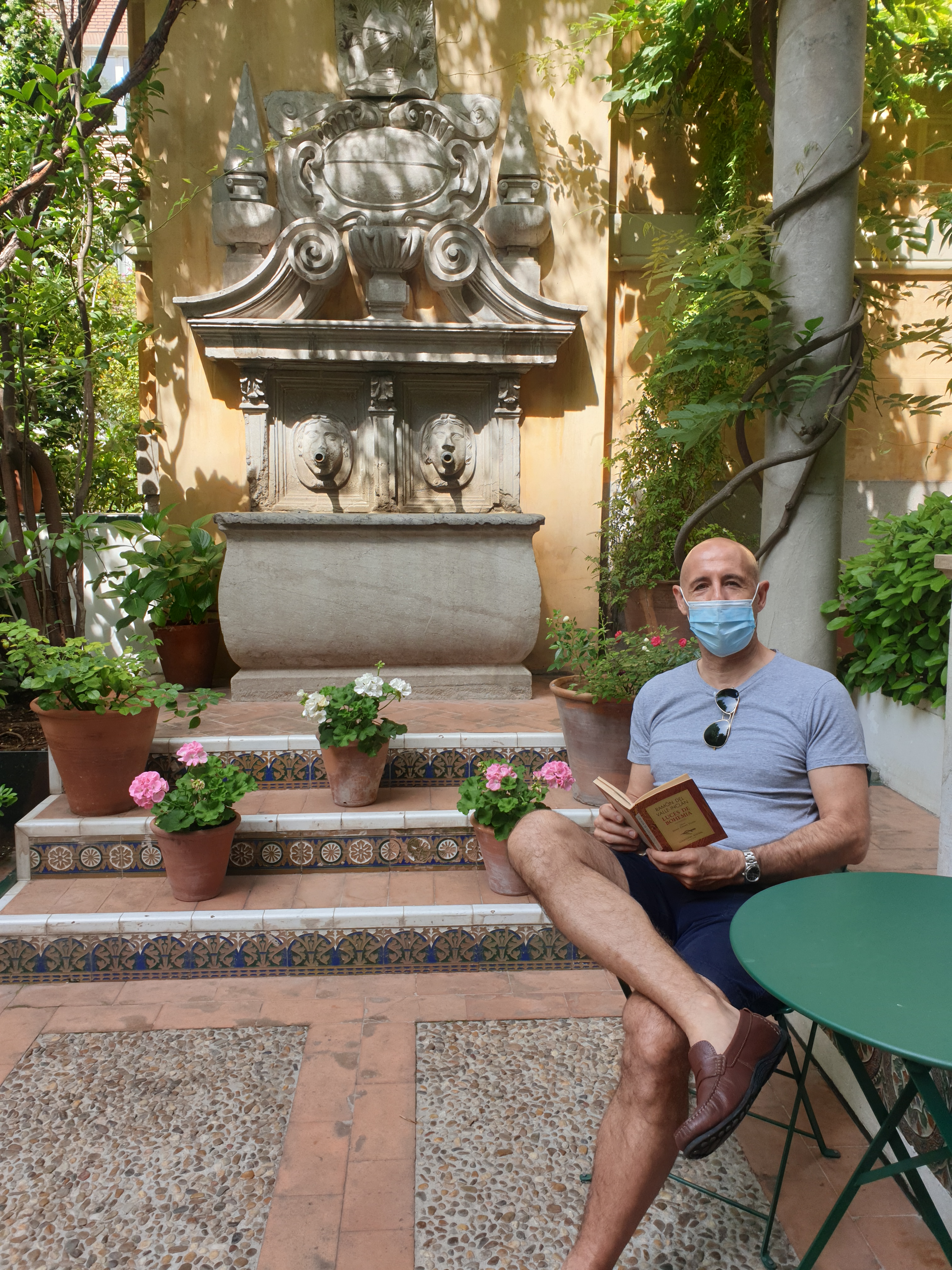
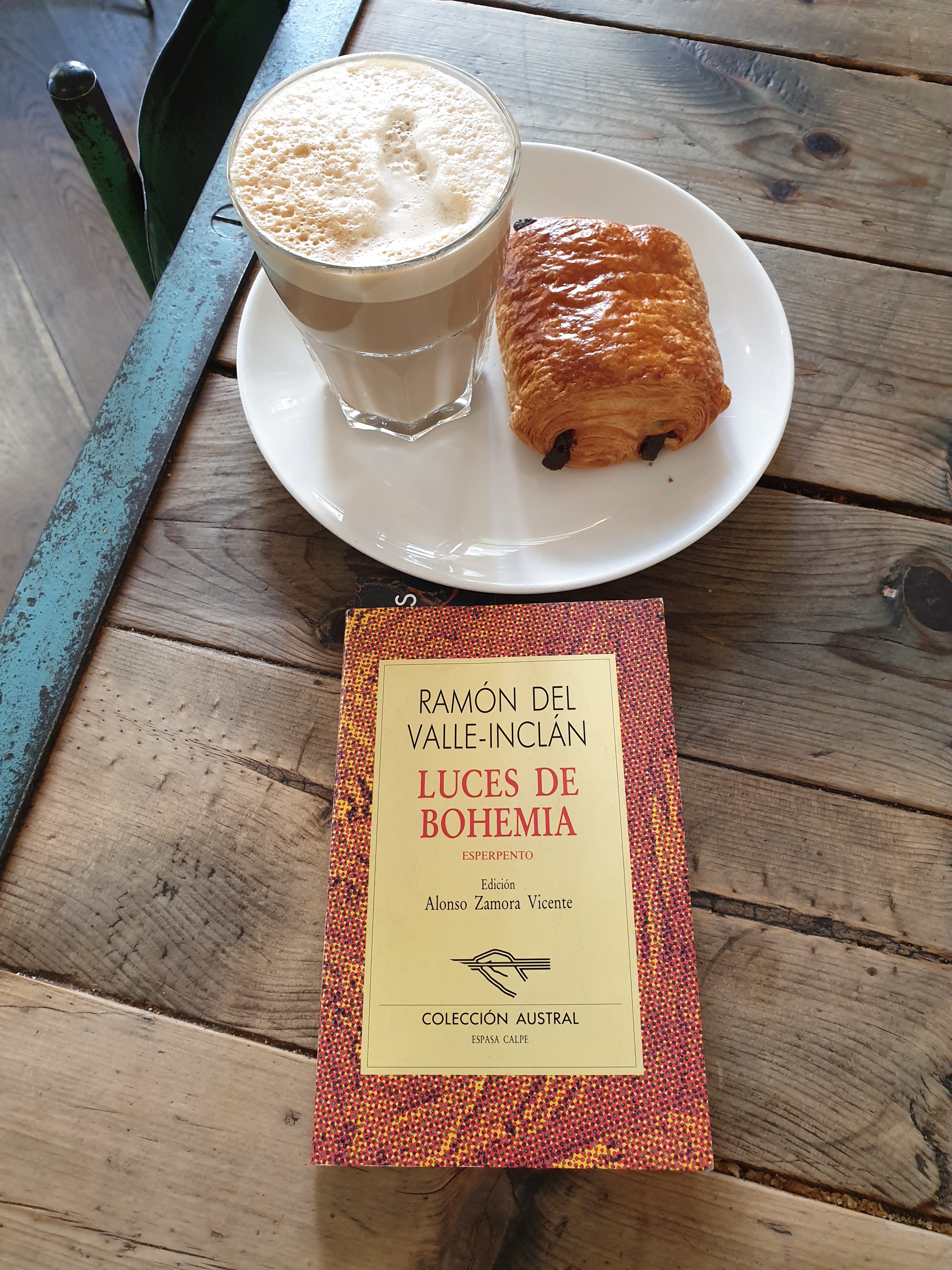
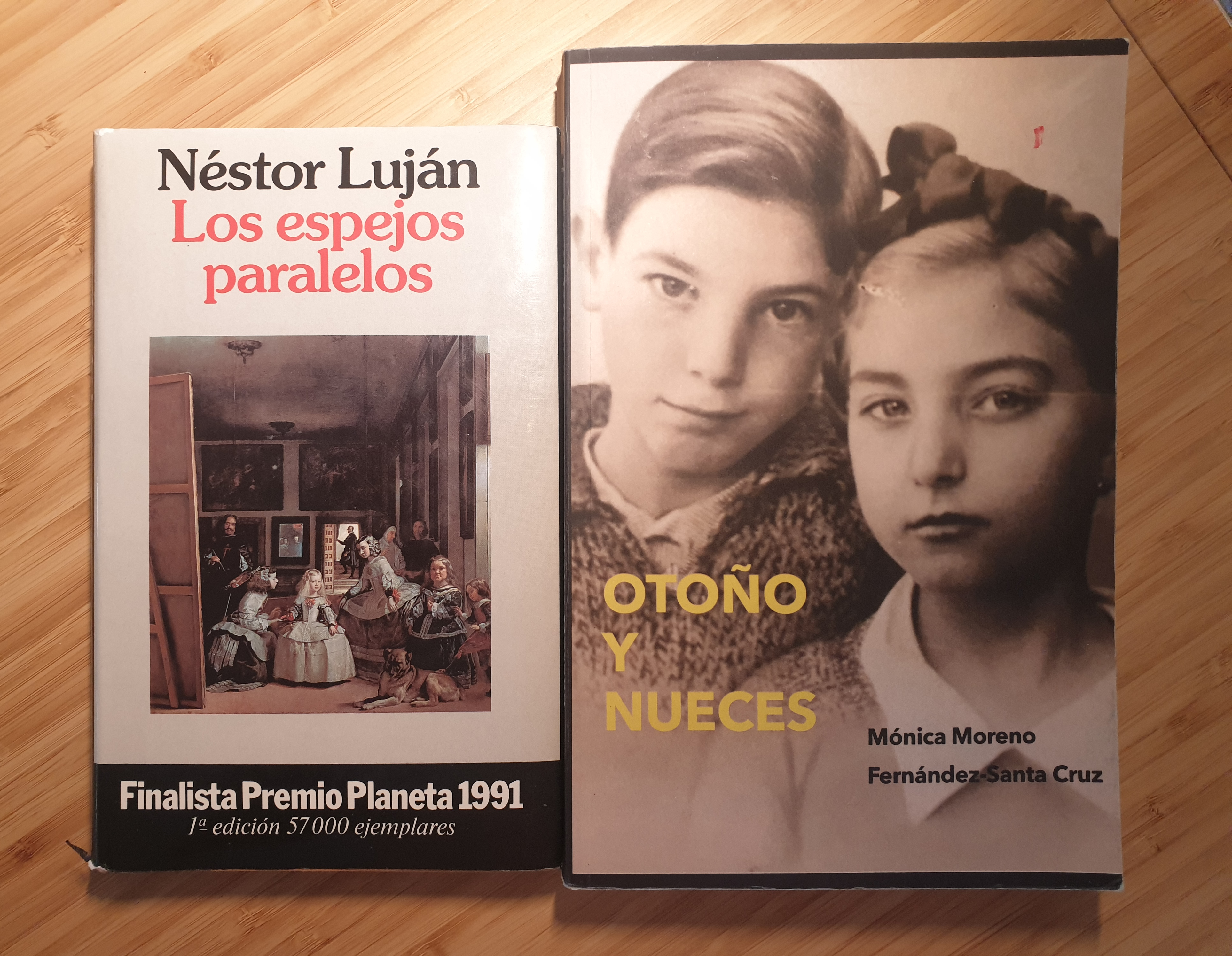

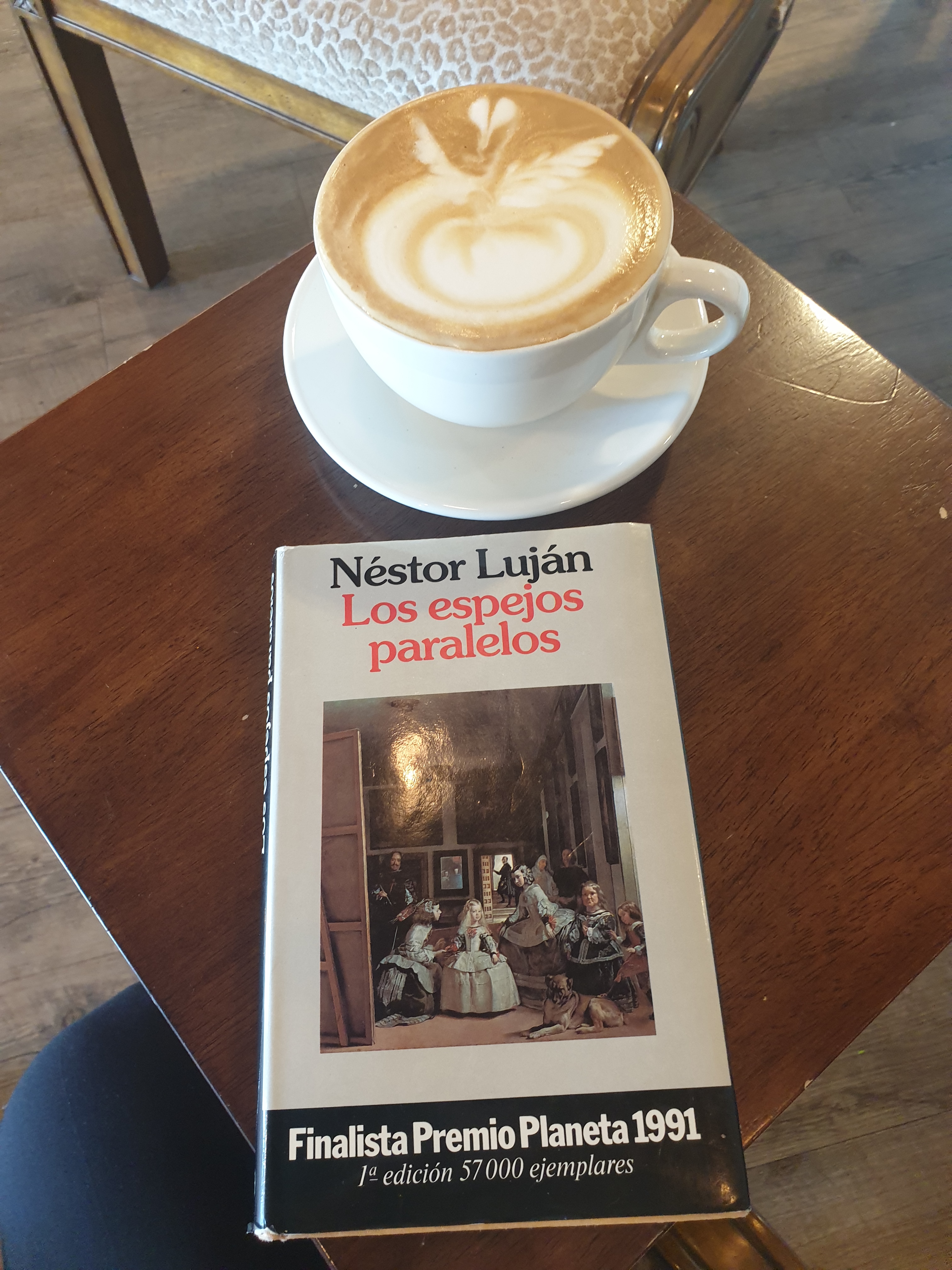
Confession time: I have a problem that started around high school, I cannot stop reading. I read anywhere, anytime. I have books and magazines strategically placed around the house: the dining room table, the bathroom, bedside table, etc.
My summer reading was -as usual- an eclectic mix of books, here are some reviews:
Ramón del Valle Inclán Luces de Bohemia. I am a bit ashamed to disclose that I have a PhD in Spanish Literature and I had never read this (to my defense, my specialty was 18th C. literature, and my sub-specialties were Colonial Satire and Medieval Spanish Satire). I was surprised how fresh this book felt. Although it was written in the 1920s it might just as well have been written today. It is a satirical but profound glimpse of Spain at that time. It also introduces the concept of “esperpento” which offers a distorted and grotesque view of the world which paradoxically acts as a corrective lens to better appreciate the situation.
A critical factor of the Camino de Santiago is weight. The library of the albergue in Roncesvalles (the first stop of the Camino Francés) is full of Bibles that pilgrims with the intention of reading have “donated” because of its excessive weight and bulk. This year I carried Junichiro Tanizaki’s In Praise of Shadows which is a beautiful study of Japanese aesthetics and culture, a gorgeous essay on the philosophy of traditional Japanese interior design.
Back in Madrid I read Henri Brunel’s The Most Beautiful Zen Stories – The original is in French, and I do not think there is an English translation. The book, as the title explains has short and sweet stories, but always with a bit of a sting – a question, maybe, unanswerable, at the end.
My beach reading was a gift from my dear friend Paco Navarro: Walter Kempowski’s All for Nothing (Alles umsonst in the original German). A story about a family during the last days of WWII in Germany. A great read about family dynamics, history, the human condition, and war.
Back in my mom’s country house I dug into another war, this time the Spanish Civil War, from the hand of dear friend Monica Moreno, who writes about love and family during that fratricidal war in Otoño y nueces. Her first adult novel after a handful of YA books, is well documented and intimate. Get it on Amazon here!
Back in Florida I explored Velazquez’s masterpiece painting Las Meninas through Néstor Luján’s Los espejos paralelos, which brings the painting to life through each of the characters, including the dog! Luján takes us to the dark hallways of Madrid’s old Alcazar palace, life in the court of Philip IV, and Madrid. A delightful read –specially if you are a fan of Velazquez and Las Meninas!
My last book before Fall was Richard Rohr’s The Divine dance which reflects on the deep spirituality of the Trinity and how love flows through the universe and us!
So there are a few reading recommendations in case you needed any, you are welcome.







